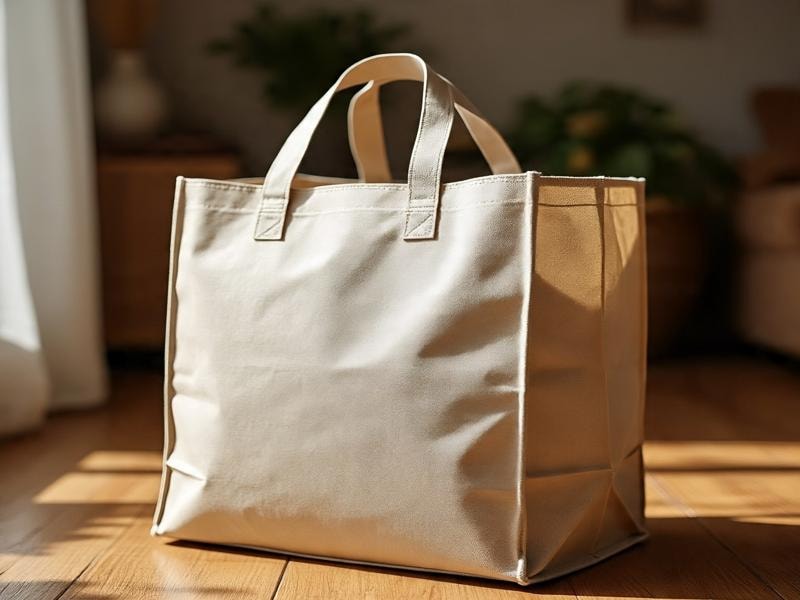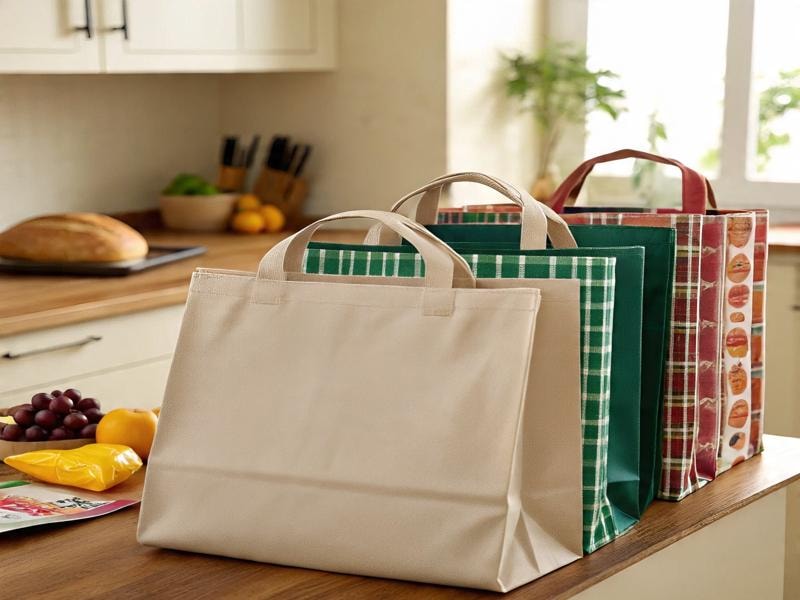
Introduction: Why Material Choice Matters for Reusable Grocery Bags
What are reusable grocery bags made of, and why are they replacing single-use plastic bags in grocery stores? Shoppers today are shifting from disposable bags like plastic bags and paper bags to durable, eco-friendly alternatives such as cotton bags, jute bags, and non-woven polypropylene bags.
This change is driven by growing awareness of plastic pollution, climate impact, and the need for a sustainable choice that can carry heavier loads and be reused many times. Studies show that reusable shopping bags made from recycled materials such as recycled plastic bottles, woven polypropylene, or organic cotton, last longer than traditional plastic shopping bags and reduce overall environmental impact.
And brands that choose recycled bags not only deliver durable reusable grocery bags but also strengthen their position as leaders in environmentally friendly alternatives. In this article, we’ll break down the most common materials used in reusable bags, from cotton and jute to nylon bags and non-woven PP, and explain their advantages for food products, non-food items, and everyday shopping.
Let’s dive into the materials, durability, and eco-friendly benefits behind the reusable grocery bag revolution.
Common Materials for Reusable Grocery Bags – Recycle Tips for Vendors and Manufacturers
Reusable grocery bags have become a popular alternative to single-use plastic bags, offering both durability and eco-friendliness, and to understand what makes them reliable, it’s important to look at the common materials used to make reusable grocery bags.
1. Cotton Bags
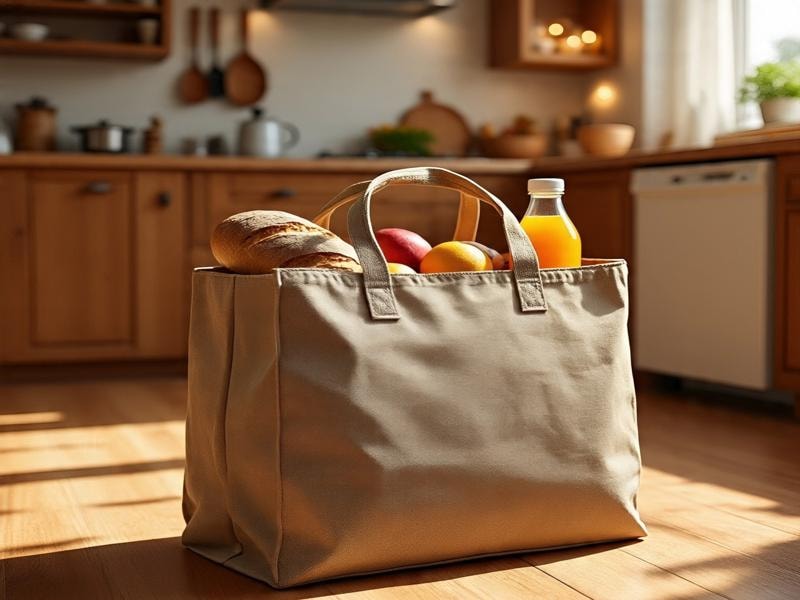
Cotton bags are one of the most common materials for reusable grocery bags. These reusable bags are natural, biodegradable, and can last for years if cared for properly. Unlike plastic bags or single-use plastic bags, a cotton bag is washable and safe for carrying food products or non-food items. Many grocery stores use cotton totes or organic cotton bags because they have a low climate impact and can be recycled at the end of their life.
They are also perfect for screen printing logos, making them a strong, eco-friendly branding option for companies that want to show environmental considerations. By choosing cotton bags instead of disposable bags like paper bags or plastic shopping bags, shoppers make a sustainable choice that reduces plastic pollution.
2. Canvas Bags
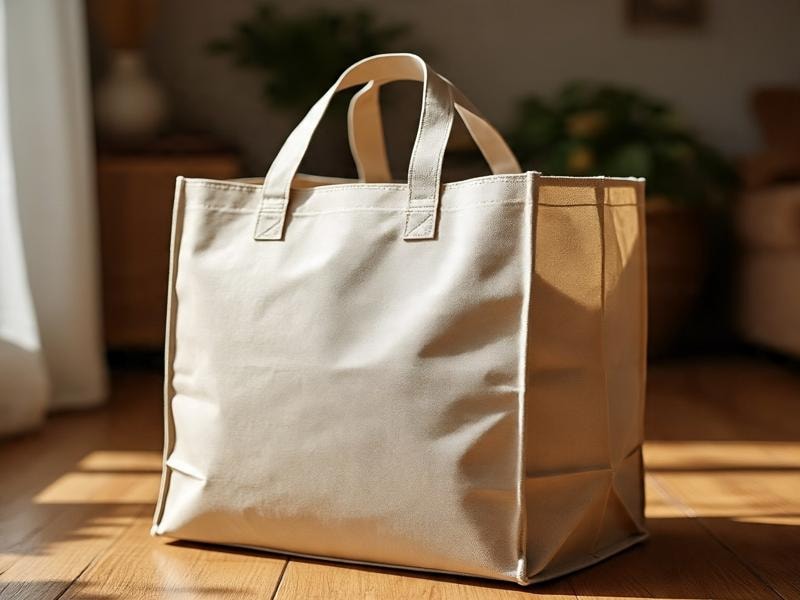
Canvas bags are made from thicker cotton material, which makes them heavier and more durable than regular cotton bags. This reusable bag can handle heavier loads, such as fresh produce, packaged food items, or even non-food items like gym clothes.
A canvas shopping bag is designed for long-term reuse, making it an environmentally friendly alternative to single-use bags. Also, many reusable shopping bags made of canvas are strong enough to replace dozens of plastic shopping bags over their lifetime, helping people reuse plastic bags less often.
They are not just practical but also stylish, and they position brands as eco-friendly leaders when used for promotions. Because they are sturdy and recyclable, canvas bags are one of the most trusted materials for people who want a bag that will carry more and last longer.
3. Nylon Bags
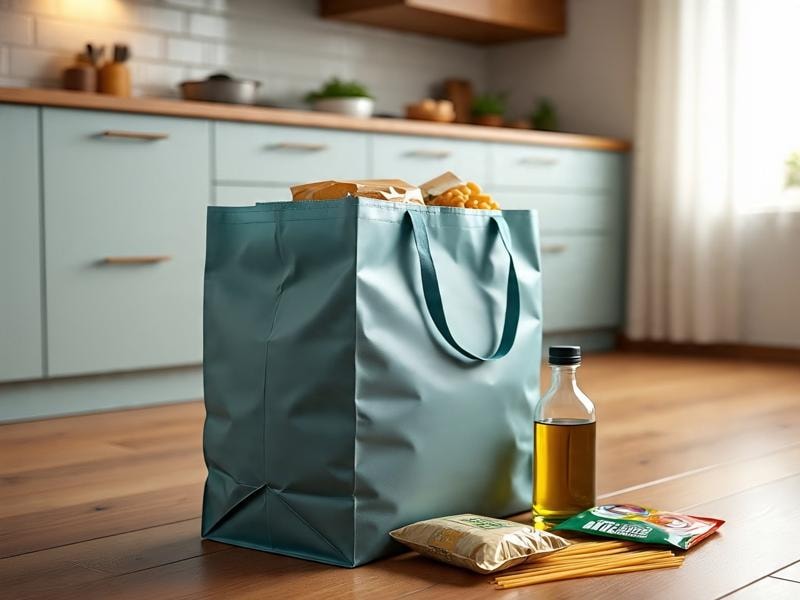
Nylon bags are a favorite reusable bag option because they are lightweight, foldable, and water-resistant. These reusable grocery bags are easy to store in your car, purse, or pocket, making them perfect for people who forget to bring their own bags to grocery stores. Unlike paper bags that tear when wet, a nylon bag can carry food products or produce safely without damage.
They are also a sustainable choice because they reduce the need for single-use bags. And since nylon bags can be reused many times, they lower the environmental impact while giving shoppers a convenient option for carrying groceries and other items. They are especially popular with younger shoppers who value compact, practical, and eco-friendly alternatives.
4. Non-Woven Polypropylene (PP)
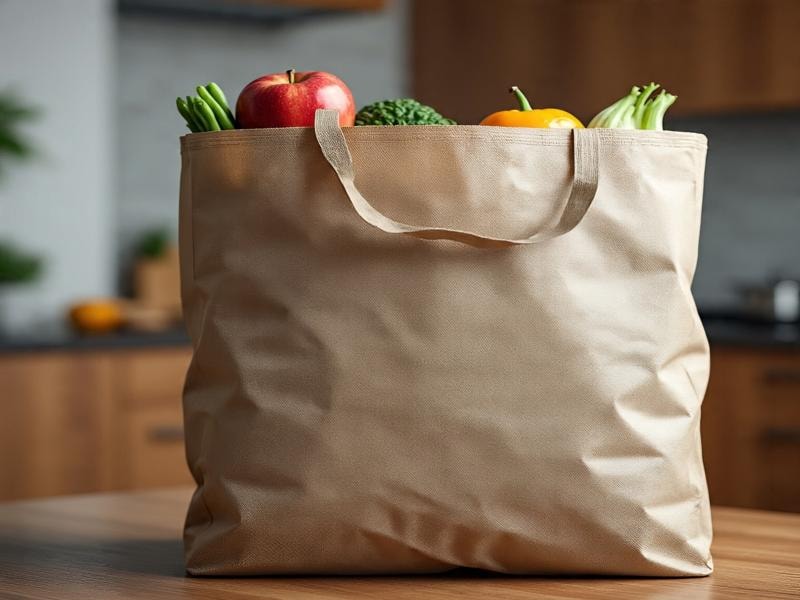
Non-woven polypropylene or non-woven PP bags are one of the most widely used reusable grocery bags around the world. These bags are lightweight, durable, and cost-effective, which is why they are often seen as promotional giveaways at grocery stores and events.
Unlike plastic bags, non-woven polypropylene can be reused many times, making it a better alternative to single-use bags. They can be printed with logos and designs, which allows brands to promote their eco-friendly values while providing customers with a practical shopping bag.
Non-woven bags are also water-resistant, easy to carry, and have a lower environmental impact compared to disposable bags like plastic shopping bags. They are also ideal for food safety and intended use with both food products and non-food items.
5. Recycled Materials (rPET, Recycled Cotton)
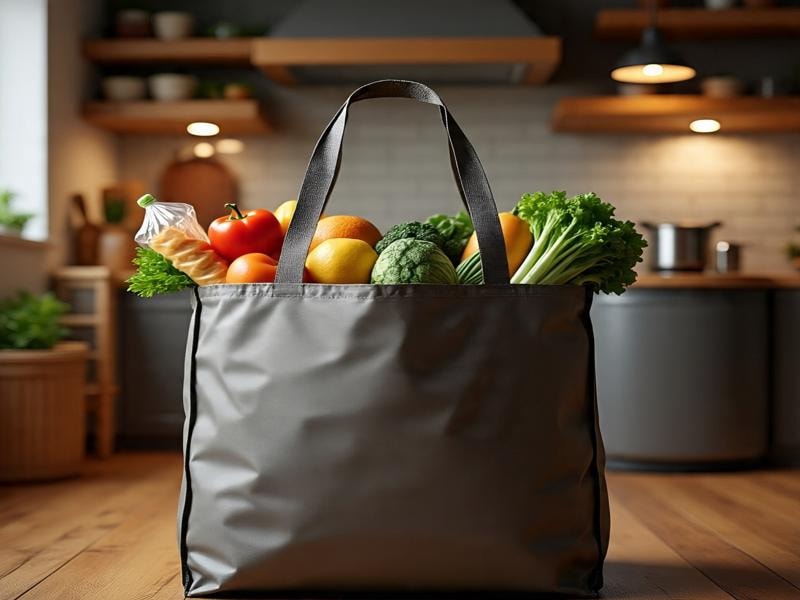
Many reusable shopping bags today are made from recycled materials, such as rPET (recycled PET from plastic bottles) or recycled cotton. Bags made from recycled plastic bottles help reduce plastic pollution by giving plastics a second life instead of letting them end up in landfills or oceans.
Recycled cotton and canvas are also eco-friendly options that use less energy in the manufacturing process compared to producing new cotton bags. These reusable bags align perfectly with sustainability goals, and they are a great talking point for brands that want to highlight their commitment to recycling and environmental considerations.
Recycled material bags are durable, washable, and often just as strong as bags made from new fabric. They serve as an environmentally friendly alternative to single-use bags and showcase how grocery stores and companies can make a real difference in reducing climate impact.
How to Choose the Right Material for Your Business
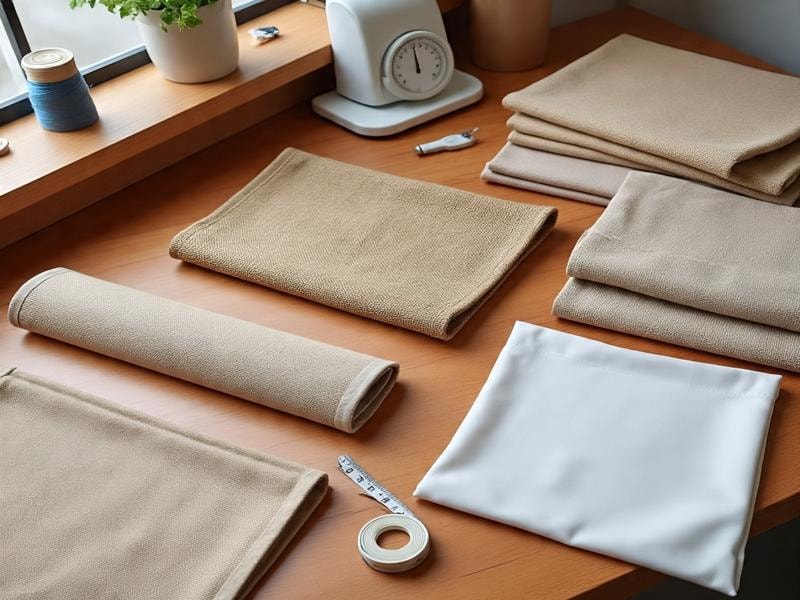
When picking reusable bag materials, it’s important to think about how the bags will be used, how much they cost, and what they say about your brand. Not every material works for every business, so here are some things to consider:
1. Durability
If customers are carrying groceries, books, or heavy items, the bag needs to be strong and long-lasting. In this case cotton canvas and woven polypropylene are good choices because they can hold a lot of weight without tearing.
Canvas bags can also be washed and reused many times, which adds to their lifespan. On the other hand, lighter materials like non-woven polypropylene are less durable, but they can still handle everyday shopping trips or light retail use.
2. Cost
Budget plays a huge role in choosing materials. For instance, Cotton and jute bags look premium but cost more, which makes them better for businesses selling higher-end products or wanting to show a strong eco-friendly image.
If you’re ordering thousands of bags for giveaways or promotions, non-woven polypropylene is a less expensive option, and it is still reusable. And there are also Recycled PET or RPET bags; they might be a mid-range option, but they let you achieve both sustainability and affordability.
3. Branding Capabilities
Reusable bags are like moving billboards, so the material should match your branding goals. Smooth fabrics like polyester or RPET make logos, designs, and colors pop clearly, which is ideal for retail stores or businesses that want strong brand visibility.
On the other hand, cotton and jute have a more natural, eco-friendly look that appeals to sustainability-focused audiences, but detailed printing may not appear as sharp on them. Some businesses even mix materials to balance style and print quality.
4. Audience Preferences
Knowing your customers helps you pick the right material. Eco-conscious shoppers often look for organic cotton, jute, or recycled fabrics because they want bags that match their values. While young shoppers may prefer trendy designs on polyester or RPET bags that they can reuse daily.
For events, store customers usually expect lightweight, portable bags that are easy to hand out and carry around, so non-woven polypropylene or polyester works well.
Matching Materials to Use Cases
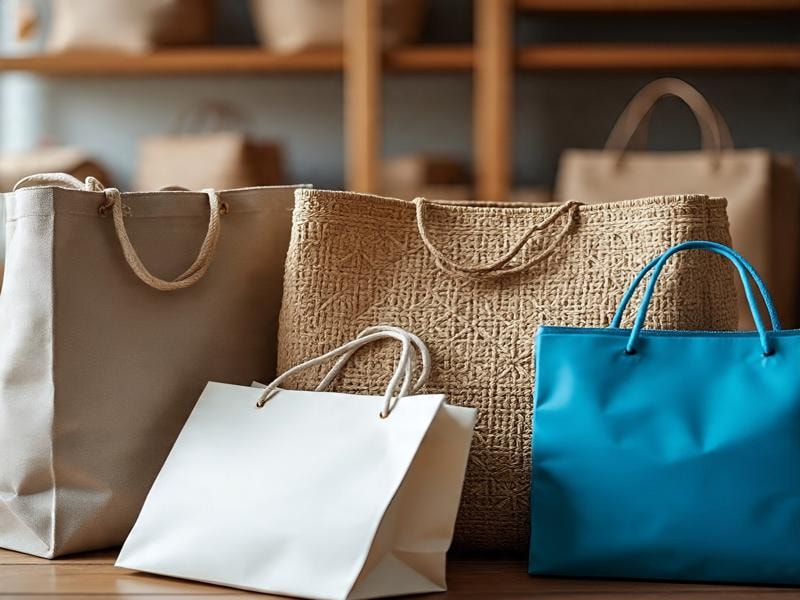
When you match the bag material to your business needs, you get the right mix of function, cost, and branding. Here are how different options work for grocery chains, retail stores, and events:
- Grocery Chains: They need strong, washable bags made from cotton canvas or woven polypropylene, because these can carry heavy shopping loads.
- Retail Stores: They do well with affordable bags that also show off their brand. Non-woven polypropylene or RPET are good choices since they keep costs low and allow easy printing.
- Events and Giveaways: These work best with light, low-cost bags like non-woven polypropylene or polyester. They’re easy to hand out in large numbers.
Sustainability Impact of Each Material
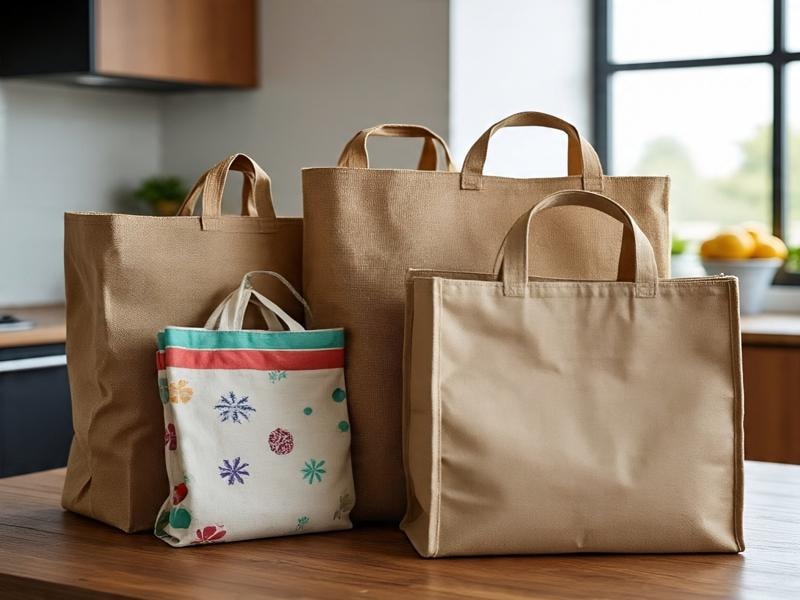
When asking what reusable grocery bags are made of, it’s important to consider both their carbon footprint and end-of-life disposal, since these factors decide whether they are a truly eco-friendly alternative to single-use plastic bags.
Below is a breakdown of how the most common reusable grocery bags compare in terms of sustainability.
Cotton Bags (including Organic Cotton and Cotton Totes)
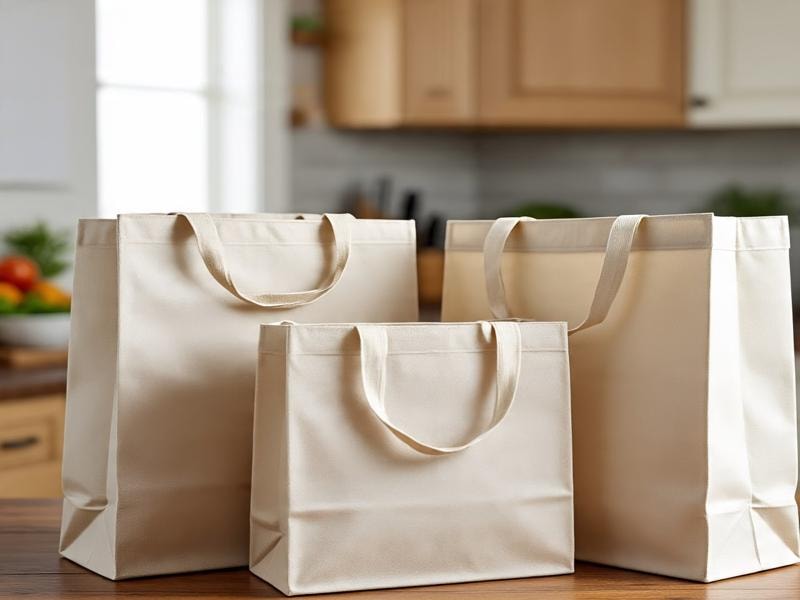
Cotton bags are a popular choice for eco-friendly shoppers. However, their carbon footprint during manufacturing is relatively high because cotton requires more energy, water, and land to grow.
A single cotton bag must be reused many times, sometimes hundreds of times, to offset the climate impact compared to plastic shopping bags or paper bags. At the end of life, a cotton bag is biodegradable and recyclable, meaning it breaks down naturally without adding to plastic pollution.
Organic cotton bags perform slightly better since they use fewer chemicals in farming, but they still need frequent reuse to be a sustainable choice. And when cared for and reused for years, a cotton tote becomes a durable, long-term replacement for single-use bags.
Canvas Bags
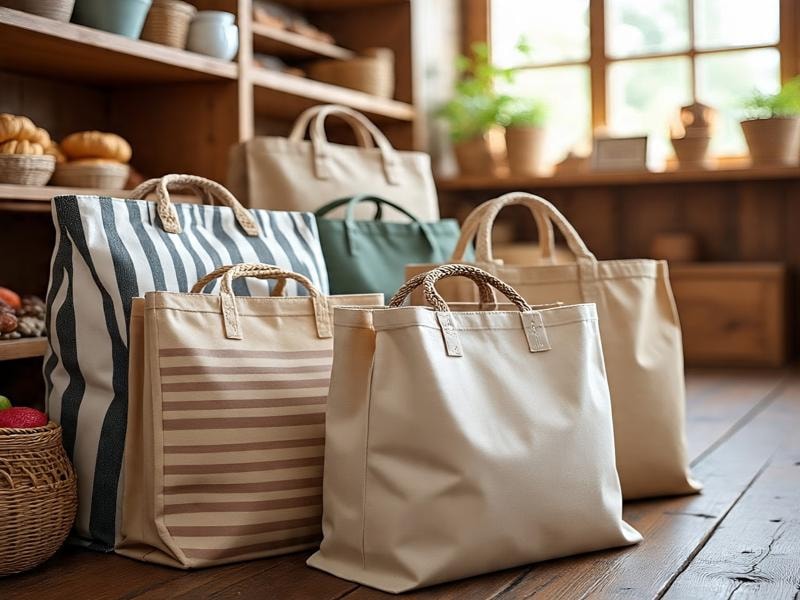
Canvas, which is made from heavier cotton, has an even higher environmental impact in production because it uses more raw material and energy during the manufacturing process. On the positive side, a canvas reusable grocery bag is extremely durable, carrying heavier loads and replacing many disposable bags over its lifetime.
Canvas shopping bags can last for years, making them a reliable alternative to single-use bags and plastic bags. Canvas bags are also recyclable and biodegradable, just like cotton bags. However, their strength means they need to be reused fewer times than lighter cotton bags to become eco-friendly in terms of carbon footprint.
Nylon Bags
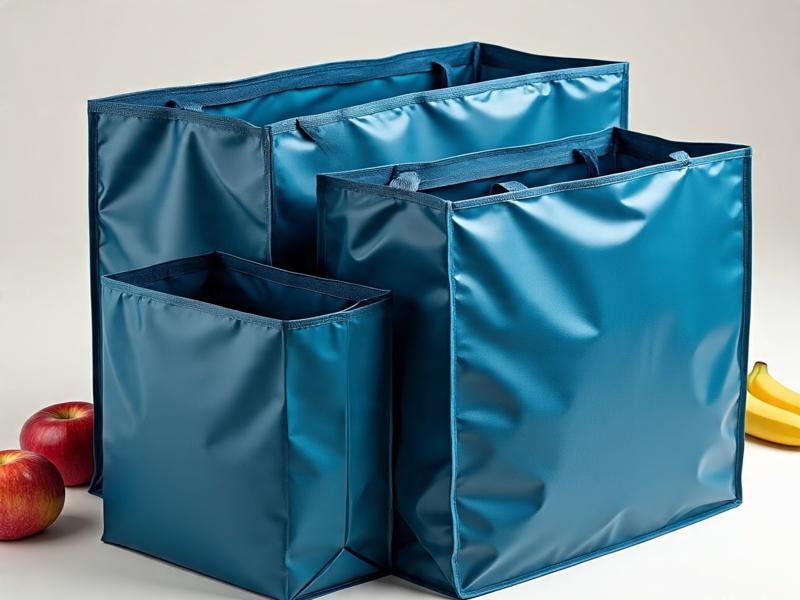
Nylon bags are lightweight, water-resistant, and compact, which makes them one of the most practical reusable shopping bag options. From a carbon footprint perspective, nylon is a synthetic material made from plastics, so its manufacturing process consumes more energy and produces more emissions than natural fibers.
However, because nylon bags can be reused hundreds of times and are easy to store and carry, their long lifespan balances out some of the initial climate impact. Although end-of-life disposal can be more challenging because nylon bags are not biodegradable, and recycling options are limited in many regions. Still, by replacing countless paper bags and single-use plastic bags, nylon bags remain a sustainable choice when reused frequently and responsibly.
Non-Woven Polypropylene (PP)
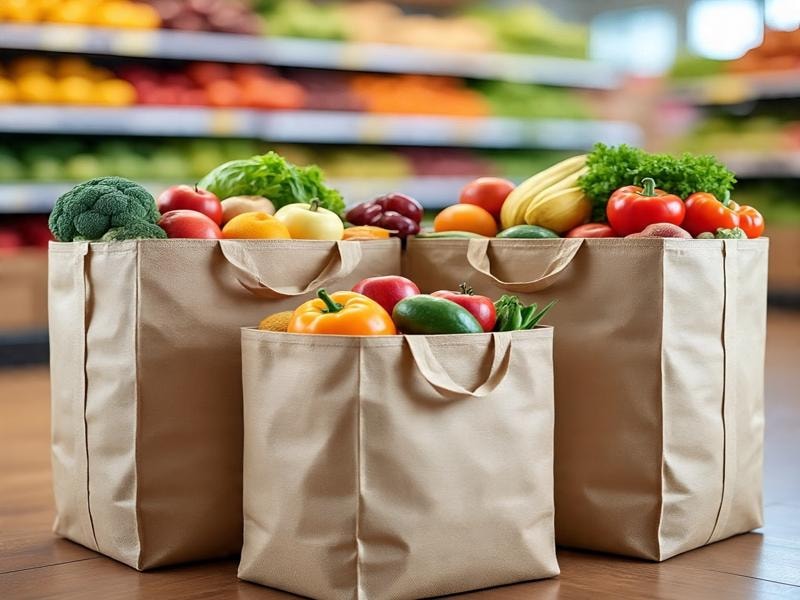
Non-woven polypropylene (non-woven PP) bags are among the most widely used reusable bags because they are cheap to produce and easy to customize. Compared to cotton and canvas, their carbon footprint during production is lower because they require less energy and fewer resources. Each non-woven bag, however, must be reused multiple times to offset the environmental impact compared to a single plastic bag.
When no longer usable, non-woven polypropylene is recyclable in some areas, but due to limited recycling facilities, much of it ends up as waste. And although they are not biodegradable, non-woven bags are still an environmentally friendly alternative to plastic shopping bags and paper bags. However, with proper recycling infrastructure, these bags could significantly reduce plastic pollution.
Jute Bags
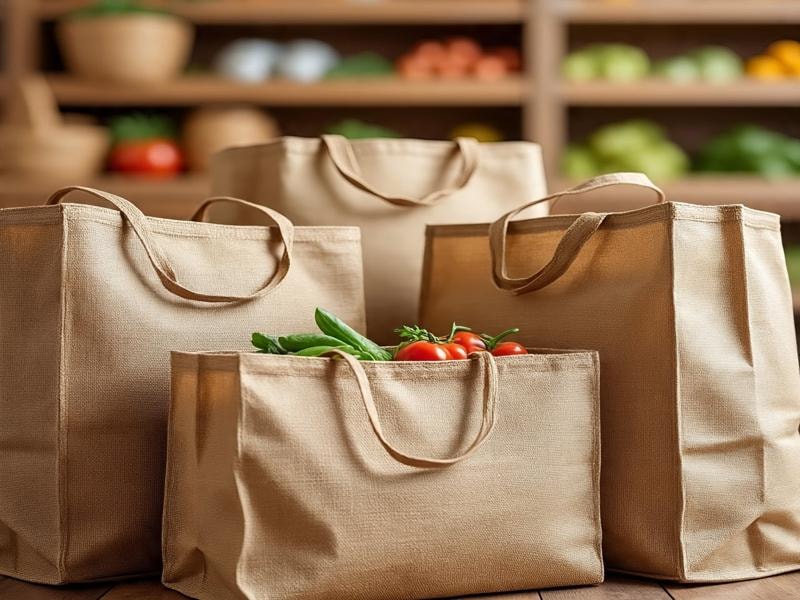
Jute bags are made from natural plant fibers and are biodegradable, making them one of the most eco-friendly options for a reusable grocery bag. The carbon footprint of jute is relatively low because it grows quickly, needs little water, and requires fewer pesticides compared to cotton.
As a result, jute bags have a smaller environmental impact during production than cotton bags or canvas bags. And after use, jute shopping bags can biodegrade naturally, causing no plastic pollution. Making them a great choice for people who want a long-lasting, recyclable, and biodegradable alternative to plastic shopping bags.
Recycled Materials (rPET, Recycled Cotton, Recycled Canvas)
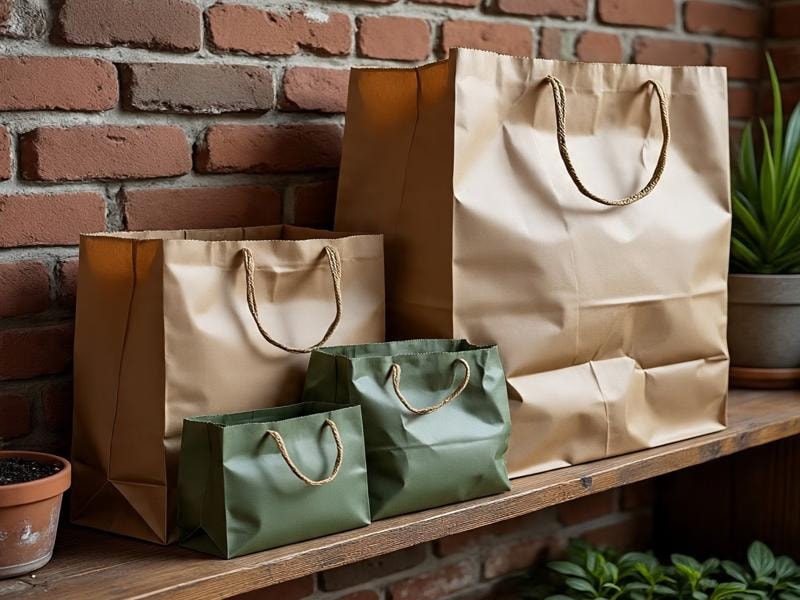
Reusable bags made from recycled materials, such as rPET (recycled PET from plastic bottles), recycled cotton, or recycled canvas, have some of the lowest climate impacts among all bag options. Since they reuse plastic bottles and textiles that would otherwise contribute to plastic pollution, these shopping bags save energy, reduce waste, and limit the use of new raw materials.
For example, a reusable shopping bag made of recycled PET reduces the demand for virgin plastics and cuts greenhouse gas emissions in the manufacturing process. So, once worn out, many of these recycled material bags can be recycled again, though the facilities that are used in the recycling process vary depending on the local governments. Regardless, their durability makes them a strong alternative to single-use bags, and their eco-friendly branding appeal positions them as the future of sustainable grocery bags.
FAQs – Material Selection for B2B Buyers
Which material lasts the longest for grocery bags?
Cotton canvas and woven polypropylene bags usually last the longest because they are strong and durable.
Are nylon grocery bags recyclable?
Yes, but not in regular recycling bins. They need special drop-off points.
Can cotton bags be machine-washed?
Yes, most cotton bags can be washed in the machine and reused many times.
What’s the most cost-effective material for bulk orders?
Non-woven polypropylene is usually the cheapest for large orders.
Do recycled fabric bags meet eco-certifications?
Yes, many recycled fabric bags come with eco-labels like Global Recycled Standard or GRS.
CTA – Bulk Order Durable & Eco-Friendly Grocery Bags
Looking for strong, reusable grocery bags that match your brand? At Itendee, we specialize in custom-printed bags made from cotton, canvas, nylon, and recycled fabrics. With years of experience in sustainable packaging, our team helps businesses find the right balance between durability, affordability, and style.
You can download our catalog to explore materials, styles, and printing options, or request a free quote or schedule a quick consultation today. Your customers deserve eco-friendly bags. Let’s create them together.

